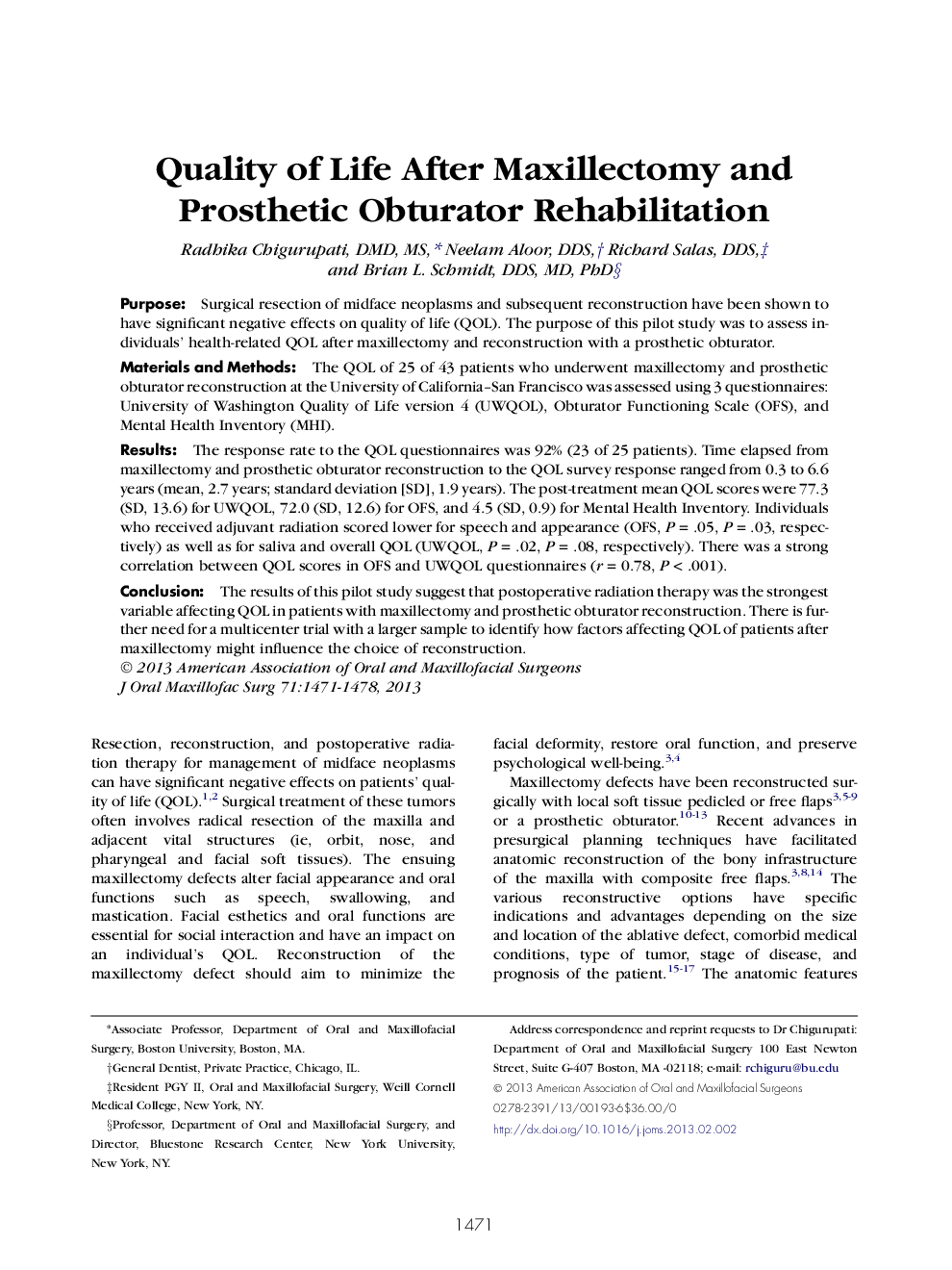| Article ID | Journal | Published Year | Pages | File Type |
|---|---|---|---|---|
| 3153256 | Journal of Oral and Maxillofacial Surgery | 2013 | 8 Pages |
PurposeSurgical resection of midface neoplasms and subsequent reconstruction have been shown to have significant negative effects on quality of life (QOL). The purpose of this pilot study was to assess individuals' health-related QOL after maxillectomy and reconstruction with a prosthetic obturator.Materials and MethodsThe QOL of 25 of 43 patients who underwent maxillectomy and prosthetic obturator reconstruction at the University of California–San Francisco was assessed using 3 questionnaires: University of Washington Quality of Life version 4 (UWQOL), Obturator Functioning Scale (OFS), and Mental Health Inventory (MHI).ResultsThe response rate to the QOL questionnaires was 92% (23 of 25 patients). Time elapsed from maxillectomy and prosthetic obturator reconstruction to the QOL survey response ranged from 0.3 to 6.6 years (mean, 2.7 years; standard deviation [SD], 1.9 years). The post-treatment mean QOL scores were 77.3 (SD, 13.6) for UWQOL, 72.0 (SD, 12.6) for OFS, and 4.5 (SD, 0.9) for Mental Health Inventory. Individuals who received adjuvant radiation scored lower for speech and appearance (OFS, P = .05, P = .03, respectively) as well as for saliva and overall QOL (UWQOL, P = .02, P = .08, respectively). There was a strong correlation between QOL scores in OFS and UWQOL questionnaires (r = 0.78, P < .001).ConclusionThe results of this pilot study suggest that postoperative radiation therapy was the strongest variable affecting QOL in patients with maxillectomy and prosthetic obturator reconstruction. There is further need for a multicenter trial with a larger sample to identify how factors affecting QOL of patients after maxillectomy might influence the choice of reconstruction.
